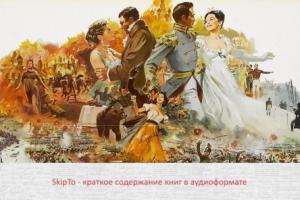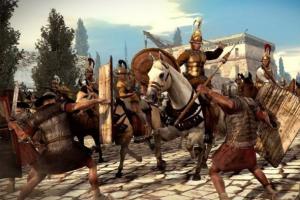King Pyrrhus. Source: Commons.wikimedia.org
A Pyrrhic victory is a victory that came at too high a price, the result of which did not justify the effort and money invested.
Origin of the expression
The origin of the expression is associated with the battle of Ausculum (in 279 BC). Then the Epirus army of King Pyrrhus attacked the Roman troops for two days and broke their resistance, but the losses were so great that Pyrrhus remarked: “Another such victory, and I will be left without an army.” Another version of the same phrase is known: “Another such victory, and we are lost.”
The Secret of War Elephants
In this battle, Pyrrhus won thanks to the presence of war elephants in his army, against which at that time the Romans did not yet know how to fight and therefore were powerless against them, “as if before rising water or a destructive earthquake,” as he wrote Plutarch. The Romans then had to leave the battlefield and retreat to their camp, which, according to the customs of those times, meant the complete victory of Pyrrhus. But the Romans fought courageously, so the winner that day lost as many soldiers as the vanquished - 15 thousand people.
Predecessors of the expression
Before Pyrrhus, the expression “Cadmean victory” was in use, based on the ancient Greek epic “Seven against Thebes” and found in Plato in his “Laws”. An interpretation of this concept can be found in the ancient Greek writer Pausanias: telling about the Argives’ campaign against Thebes and the victory of the Thebans, he reports:
“... but for the Thebans themselves this matter was not without great losses, and therefore the victory, which turned out to be disastrous for the victors, is called the Cadmean victory.” (c) “Description of Hellas”, book. IX.
Epirus is a geographical and historical region in southeastern Europe between modern Greece and Albania. Epirus was part of ancient Hellas with the rivers Acheron and Kokytos and the Illyrian population. To the north of Epirus was Illyria, to the northeast - Macedonia, to the east - Thessaly.
To the south were the regions of Ambracia, Amphilochia, Acarnania, and Aetolia.
Pyrrhic victory
Pyrrhic victory
According to the ancient Greek historian Plutarch, King Pyrrhus of Epirus in 279 BC. e., after his victory over the Romans at Asculum, he exclaimed: “Another such victory, and we are lost.” Another version of the same phrase is known: “Another such victory, and I will be left without an army.”
In this battle, Pyrrhus won thanks to the presence of war elephants in his army, against which at that time the Romans did not yet know how to fight and therefore were powerless against them, “as if before rising water or a destructive earthquake,” as the same Plutarch wrote. The Romans then had to leave the battlefield and retreat to
his camp, which, according to the customs of those times, meant the complete victory of Pyrrhus. But the Romans fought courageously, so the winner that day lost as many soldiers as the vanquished - 15 thousand people. Hence this bitter confession of Pyrrhus.
Contemporaries compared Pyrrhus to a dice player who always makes a successful throw, but does not know how to take advantage of this luck. As a result, this feature of Pyrrhus destroyed him. Moreover, his own “miracle weapon” - war elephants - played an ominous role in his death.
When Pyrrhus's army was besieging the Greek city of Argos, his warriors found a way to infiltrate the sleeping city. They would have captured it completely bloodlessly, if not for Pyrrhus’ decision to introduce war elephants into the city. They did not pass through the gates - the combat towers installed on them were in the way. They began to remove them, then put them back on the animals, which caused a noise. The Argives took up arms, and fighting began in the narrow city streets. There was general confusion: no one heard orders, no one knew who was where, what was happening on the next street. Argos turned into a huge trap for the Epirus army.
Pyrrhus tried to quickly get out of the “captured” city. He sent a messenger to his son, who was standing with a detachment near the city, with an order to urgently break down part of the wall so that the Epirus warriors would quickly leave the city. But the messenger misunderstood the order, and the son of Pyrrhus moved to the city to the rescue of his father. So two oncoming streams collided at the gates - those retreating from the city and those who rushed to their aid. To top it all off, the elephants rebelled: one lay down right at the gate, not wanting to move at all, the other, the most powerful, nicknamed Nikon, having lost his wounded driver friend, began to look for him, rush around and trample both his own and other people’s soldiers. Finally, he found his friend, grabbed him with his trunk, put him on his tusks and rushed out of the city, crushing everyone he met.
In this commotion, Pyrrhus himself died. He fought with a young Argive warrior, whose mother, like all the women of the city, stood on the roof of her house. Being near the scene of the fight, she saw her son and decided to help him. Having broken out a tile from the roof, she threw it at Pyrrhus and hit him in the neck, unprotected by armor. The commander fell and was finished off on the ground.
But, besides this “sadly born” phrase, Pyrrhus is also known for some achievements that enriched the military affairs of that time. So. He was the first to surround the military camp with a defensive rampart and ditch. Before him, the Romans surrounded their camp with carts, and that was how its arrangement usually ended.
Allegorically: a victory that came at a very high price; success equals defeat (ironic).
Encyclopedic Dictionary of winged words and expressions. - M.: “Locked-Press”. Vadim Serov. 2003.
Pyrrhic victory
King Pyrrhus of Epirus in 279 BC. defeated the Romans at the Battle of Ausculum. But this victory, as Plutarch (in the biography of Pyrrhus) and other ancient historians say, cost Pyrrhus such great losses in the army that he exclaimed: “Another such victory, and we are lost!” Indeed, in the next year, 278, the Romans defeated Pyrrhus. This is where the expression “Pyrrhic victory” arose, meaning: a dubious victory that does not justify the sacrifices made for it.
Dictionary of catch words. Plutex. 2004.
Synonyms:
See what “Pyrrhic victory” is in other dictionaries:
Ushakov's Explanatory Dictionary
PYRRHIC VICTORY. see victory. Ushakov's explanatory dictionary. D.N. Ushakov. 1935 1940 … Ushakov's Explanatory Dictionary
Noun, number of synonyms: 2 victory (28) defeat (12) ASIS Dictionary of Synonyms. V.N. Trishin. 2013… Synonym dictionary
Pyrrhic victory- wing. sl. King Pyrrhus of Epirus in 279 BC. e. defeated the Romans at the Battle of Ausculum. But this victory, as Plutarch (in the biography of Pyrrhus) and other ancient historians say, cost Pyrrhus such great losses in the army that he... ... Universal additional practical explanatory dictionary by I. Mostitsky
Pyrrhic victory- Book A victory devalued by excessive losses. The impresario jumped up and greeted Rachmaninov with a respectful, comic bow. I admit, you won... But no matter how it turned out to be a Pyrrhic victory. Serious tests await you... The entire collection is from my... ... Phraseological Dictionary of the Russian Literary Language
Pyrrhic victory- stable combination A dubious victory that does not justify the sacrifices made for it. Etymology: After the name of the Epirus king Pyrrhus (Greek Pyrros), who defeated the Romans in 279 BC. e. a victory that cost him huge losses. Encyclopedic... ... Popular dictionary of the Russian language
Pyrrhic victory- A victory that came at the cost of such huge losses that it becomes doubtful or not worth it (from the historical event of the victory of King Pyrrhus over the Romans at the cost of huge losses) ... Dictionary of many expressions
Pyrrhus Campaign A Pyrrhic victory, a victory that came at too great a price; victory is equivalent to defeat. The origin of this expression is due to the battle of Auskul in 2 ... Wikipedia
- (on behalf of the Epirus king Pyrrhus, who won a victory over the Romans in 279 BC that cost him enormous losses) a dubious victory that does not justify the sacrifices made for it. New dictionary of foreign words. by EdwART, 2009 … Dictionary of foreign words of the Russian language
Pyrrhic victory- book. a victory that cost too much sacrifice, and is therefore tantamount to defeat. The expression is associated with the victory of the Epirus king Pyrrhus over the Romans (279 BC), which cost him such losses that, according to Plutarch, he exclaimed: “Another ... ... Phraseology Guide
Books
- Demyansk massacre. "Stalin's missed triumph" or "Hitler's Pyrrhic victory"?", Simakov Alexander Petrovich. This massacre became the longest battle of the Great Patriotic War, which lasted for a year and a half, from September 1941 to March 1943. This bloody battle was fought on both sides announced...
Phraseologism “Pyrrhic victory” meaning
Win a victory at the cost of unreasonably huge losses.
According to Plutarch's description, the victory over the Romans in 279 BC. The Epirus king Pyrrhus suffered so many victims that when he learned about it, he exclaimed: “Another such victory - and we perished!”
And in fact, the next year his troops were defeated by the same Romans.
Expression Pyrrhic victory means the following: victory that does not justify the sacrifices made for it; victory equals defeat.
Other source:
There is a region of Epirus in Greece. King Pyrrhus of Epirus in 280 BC. e. waged a long and brutal war with Rome. Twice he managed to win; His army had war elephants, but the Romans did not know how to fight with them. Nevertheless, the second victory was given to Pyrrhus at the cost of such sacrifices that, according to legend, he exclaimed after the battle: “Another such victory - and I will be left without an army!”
The war ended with the defeat and retreat of Pyrrhus from Italy. Words " Pyrrhic victory" have long since become a symbol of success, bought at such a high price that, perhaps, defeat would have been no less profitable: "The victories of the fascist troops near Yelnya and Smolensk in 1941 turned out to be true " Pyrrhic victories».
Example:
The impresario jumped up and greeted Rachmaninov with a respectful and comic bow. - I admit, you are winners... But no matter how it turned out to be a Pyrrhic victory. “Serious trials await you... All proceeds from my concerts will go to the Red Army Fund” (Yu. Nagibin).
(Pupp is the king of Epirus, who in 279 BC won a victory over the Romans at the Battle of Ausculum. However, his losses were so great that he exclaimed: “Another such victory, and we are lost!” Already in the next 278, the Romans defeated Pyrrhus).
Pyrrhic victory
Over the years, Rome increasingly expanded its influence. So, one day the inhabitants of the Greek city of Tarentum, in southern Italy, sank the Roman ships that entered their harbor and thus gave Rome a reason for war, which was declared on Tarentum in 281 BC. e. Fearing the power of the Roman state, the Tarentines sent for help to the Greek kingdom of Epirus, where Pyrrhus, a famous warrior and commander, ruled at that time. Knowing that after the unsuccessful war with Macedonia, Pyrrhus was spending his days in idleness, the ambassadors of Tarentum came with rich gifts, promising Pyrrhus the help of all the Greek cities of Italy if he opposed Rome.
Pyrrhus, flattered by these speeches, agreed. All his comrades unanimously supported him, and only the wise Kineas, the king’s adviser, tried to dissuade him, anticipating failure.
“Tell me, my king, if the gods send us victory over Rome, what will you do next?” - asked the cautious sage. “What a stupid question! - Pyrrhus laughed. “If we defeat the Romans, not a single city in Italy will resist us, and all this rich land will become ours!” - “What will you do when you take over Italy?” - continued the persistent Kineas. “But a child can understand this! - answered the king. “Sicily lies nearby, and capturing it will be a piece of cake.” “Your speeches are reasonable,” Kineas agreed. “So your campaign will end in Sicily?” - “No, what are you talking about! - Pyrrhus was surprised. “After all, it’s a stone’s throw from Sicily to Africa, and if we capture Carthage, not a single enemy in the world will dare to oppose us.” “That’s true,” Kineas admitted. - I have no doubt that then you will return Macedonia without effort. But what next, my king? - "What's next?" - Pyrrhus was amazed. - “Then we will be able to feast in silence over a pleasant conversation and no longer think about the war.” “But we are still feasting peacefully,” the sage answered slyly. “Why expose yourself to so many dangers to return to where you started?”
But no matter how witty and fair the speeches of Cineas were, Pyrrhus did not listen to him. Soon he and his army landed in Tarentum and there, having gathered all the Italian Greeks, moved towards the consular legions. In the battle, the consul was defeated, and Pyrrhus began to send messengers to Rome with an offer of peace. But the Romans, embittered by defeat, renounced peace, and the smartest of them understood in addition that Pyrrhus’s army in a foreign land was melting day by day, while the Romans could recruit twice as many soldiers as before.
Pyrrhus, who knew about this, looked for new battles. He overtook the Romans with his army near Ausculum, and a battle broke out there, which, as they say, lasted two whole days. This battle was so difficult that if it were not for the war elephants of Pyrrhus’s army, which the Romans considered equal to an earthquake, which mortals could not fight, Pyrrhus would never have been able to throw the enemy back to the camp. But in the battle most of the Epirus army, all the king’s associates and commanders died.
Looking around the battlefield, strewn with the bodies of his soldiers, Pyrrhus heard one of the survivors praising the gods for the victory. “If we achieve another victory over the Romans,” Pyrrhus exclaimed in his hearts, “we will completely perish!”
Being, however, a reasonable ruler, Pyrrhus did not bring his army to death, for at that moment the Sicilians turned to him for help and he left Italy, but his battle with Rome at Ausculum entered the annals as the famous Pyrrhic victory - a victory that came at the price of , essentially equal to defeat.
This text is an introductory fragment. From the book The Newest Book of Facts. Volume 3 [Physics, chemistry and technology. History and archaeology. Miscellaneous] author Kondrashov Anatoly Pavlovich From the book Myths and Legends of Ancient Rome author Lazarchuk Dina AndreevnaPyrrhic victory Over the years, Rome increasingly expanded its influence. So, one day the inhabitants of the Greek city of Tarentum, in southern Italy, sank the Roman ships that entered their harbor and thus gave Rome a reason for war, which was declared on Tarentum in 281 BC. e. Fearing
From the book Reconstruction of World History [text only] author Nosovsky Gleb Vladimirovich9. VICTORY OVER RAZIN AS A VICTORY OF REFORMATION It is believed that approximately 60 years after the Romanovs ascended the Moscow throne, a major “rebellion” arose in the country, today called the uprising of Stepan Timofeevich Razin. It is also called the peasant war. Allegedly,
From the book Knight at the Crossroads: Feudal War in Russia in the 15th Century. author Zimin Alexander AlexandrovichPyrrhic victory Behind the appearance of good neighborly relations between the “oldest brother” Vasily II and the “younger” - Dmitry Shemyaka, there was an irreconcilable enmity that was only waiting for an opportunity to spill out. Sooner or later, the rival princes had to try
From the book The Truth about the Great Patriotic War (collection of articles) author Sokolov Boris VadimovichPyrrhic victory (New about the war with Finland) (Published: Historians answer questions. Issue 2. Compiled by A.V. Polikarpov. M.: Moscow Worker, 1990. Published with additions.) What do we know about the Finnish war? That it began on November 30, 1939, and ended on March 12, 1940, which is
From the book SS Division "Reich". History of the Second SS Panzer Division. 1939-1945 author Akunov Wolfgang ViktorovichPyrrhic victory “One more victory like this, and I will have no warriors left.” King Pyrrhus of Epirus after the victory over the Romans Repeated and invariably unsuccessful attempts to take Rozhan with a blow to the forehead turned out to be a waste of time and completely unnecessary for the Germans
From the book Carthage must be destroyed by Miles RichardPyrrhic Victory In the early decades of the 3rd century, the Romans turned their attention to the rich cities of Magna Graecia, Magna Graecia, a vast region of southern Italy colonized by Greek settlers. After a series of border clashes with the Romans, Tarentum, the most powerful
From the book Premier. Project 2017 – myth or reality? author Ryzhkov Nikolai IvanovichChapter 4. Gorbachev's Pyrrhic victory Gorbachev was waiting. But this does not mean at all that the expectation was passive. In 1983, Andropov brought the first secretary of the Tomsk Regional Committee, Yegor Kuzmich Ligachev, to the Central Committee to the post of head of the Department of Organizational Party Work. That same year he was elected
From the book Demyansk Massacre. “Stalin’s missed triumph” or “Hitler’s Pyrrhic victory”? author Simakov Alexander PetrovichAlexander Petrovich Simakov Demyansk massacre. “Stalin’s missed triumph” or “Hitler’s Pyrrhic victory”? The author expresses gratitude to E. Vinogradov, A. Grigoriev, V. Mironov, S. Petrov, V. Stepanov, S. Skovorodkin, O. Khrushchev for their invaluable assistance in working on this
From the book Ukraine: My War [Geopolitical Diary] author Dugin Alexander GelevichPyrrhic victory of the returnee (hardware battles of Moscow and the fate of Novorossiya) Geopolitics and morality of the Ukrainian drama: a logical chain Gradually, the situation with Novorossiya, and especially Donbass, became more or less clear and turned out to be, in the aggregate, very alarming and
From the book Chronicle of the Encirclement: Demyansk and Kharkov author Moshchansky Ilya Borisovich“Pyrrhic” victory How did the story of the liquidation of the “Demyansk ledge” end? Readers will be interested to know about this. The military-political leadership of the Soviet Union again returned to the problem of the Demyansk bridgehead at the beginning of 1943. Successful offensive of the troops
From the book The Most Notorious Crimes of History author Kolkutin Viktor ViktorovichPyrrhic victory of the champion For more than a year, the media shook the minds of Russia with the story of how Dagestani Rasul Mirzaev, a champion in the most brutal martial arts, nicknamed the “Black Tiger,” cold-bloodedly killed the Moscow youth Ivan on a night street
From the book The Genius of Evil Stalin author Tsvetkov Nikolay Dmitrievich“Pyrrhic Victory” (On the winter-spring offensive of the Red Army in 1942) Based on an analysis of the situation (the enemy was running out of steam and no longer had the strength or means to conduct an offensive) G.K. Zhukov submitted to the Headquarters a plan for a counteroffensive of the Western Front on November 30, 1941
From the book Notes on the Revolution author Sukhanov Nikolay Nikolaevich6. Battle and Pyrrhic victory of democracy The bourgeoisie mobilizes the army. - Dual power. - Resolutions. – Trips to Headquarters. - Propaganda Committee. – Addresses, instructions, delegations. - In the rear garrisons. - Propaganda Headquarters. – Mobilization of civilian forces. - Zemstvo spheres. –
From the book In the Land of Myths author Arsky Felix Naumovich“PYRRHUS VICTORY” In 279 BC, the Epirus king Pyrrhus, who fought with the Romans, inflicted a severe defeat on them. And yet this event did not cause him delight. Having counted the losses of his own army, he sadly admitted: “Another such victory over the Romans - and we
From the book Mysteries of History. Patriotic War of 1812 author Kolyada Igor Anatolievich“Trifle Victory”: Victory at Kobrin Speaking about the ratio of troops before the battle at Kobrin, it should be noted that the size of Tormasov’s 3rd Observation Army varies slightly in different documents. So, according to the staff, historians count in it
Excursion into history
In 280 BC, King Pyrrhus and his large army landed in Italy. On Pyrrhus's side were the rebellious Samnites. The army included war elephants, which came as a big surprise to the Romans. The first battle ended in a decisive victory for Pyrrhus's army, even though the Romans were vastly outnumbered. A year later, in 279, the Romans sent a new army to crush Pyrrhus. After a long battle, Pyrrhus again managed to defeat the Romans, but, counting his losses, the king cried out: “Another such victory and I will be left without an army!” The Romans fought bravely, and the losses were equal - 15 thousand people.
Achievements of Pyrrhus
The king of Epirus is famous not only for the phrase “Pyrrhic victory,” but also for some achievements that enriched the military affairs of that time. It was he who first began to surround the battle camp with a ditch and rampart for defense. After the battle with the Romans, the expression "Pyrrhic victory" became widespread. Basically, it is pronounced when one has had to pay a lot for success. Such victories include the Battle of Malplaquet and the War of the Spanish Succession (1709). Then the British, after defeating the French, discovered that a third of their army had died. The Battle of Maloyaroslavets (1812) was also a Pyrrhic victory. The French then still managed to take the city, but, as you know, the Napoleonic army did not receive anything worthwhile from such an acquisition.

Contemporaries often compared Pyrrhus to a dice player, whose every throw is successful, but who does not know how to use the luck that has befallen him. As a result, this feature of Pyrrhus became the cause of his death. In addition, it was the war elephants, his secret “miracle weapon,” that played a decisive role in his death.
Battle of Argos
When Pyrrhus's army was besieging Argos, his warriors found an opportunity to quietly enter the sleeping city, but the king decided to introduce war elephants into the city. But since they did not pass through the gate, this caused a noise, and the Argives grabbed their weapons. The battle in the narrow streets led to general confusion, no one heard orders, and it was impossible to determine where anyone was. As a result, Argos became a huge trap for the Epirus army. Trying to get out of the city, Pyrrhus sent a messenger to his son with orders to break down the walls so that his army could leave the “captured city.” But his order was misunderstood, and the son of Pyrrhus went to the city to save his father. At the gate, two streams - those retreating and those who were rushing to their rescue - collided. In this pandemonium, Pyrrhus died at the hands of the mother of the warrior Argos, with whom he fought. The woman decided to help her son and threw a tile at Pyrrhus, hitting him directly in the neck, which was not protected by armor.
"Pyrrhic victory": meaning

So, a Pyrrhic victory is called a victory for which a very high price had to be paid. This is a success that can be equated with failure. In St. Petersburg, in the very center of the city, the Admiralty Tower is located. Against the sky at the corners of the tower you can see four sitting warriors. Few people know who they are, but these are the four most famous generals of ancient times: Caesar, Achilles, Pyrrhus and Alexander.








